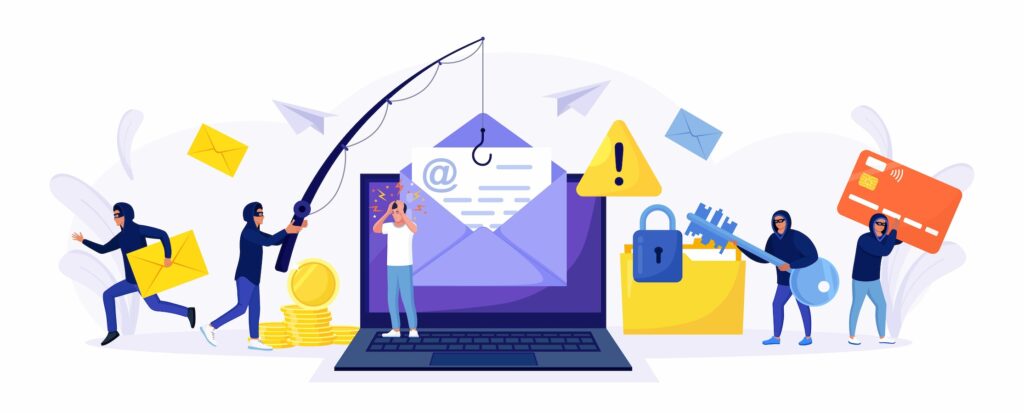Beware of Fake Invoices from Scammers Posing as Real Businesses
In a concerning trend that’s catching many off guard, scammers are now impersonating legitimate businesses to send out fake invoices. These invoices don’t just look real; they’re also cleverly timed, often appearing in your inbox just when you’re expecting a bill from that very company. However, there’s a dangerous twist: the bank details on these invoices are fake, meticulously set up by scammers aiming to divert your payment into their pockets.
This scam operates by exploiting trust. When you receive an invoice from a company you recognize and are awaiting a bill from, your guard is down. You’re less likely to scrutinize the details, assuming the request for payment is legitimate. Scammers take advantage of this trust, meticulously crafting emails that mimic the look and feel of genuine invoices from these businesses. What makes this scam particularly insidious is how convincingly these fake invoices are designed, often leaving even the most astute customers fooled.
The consequence of falling for such a scam isn’t just a financial loss; it’s also a breach of trust between you and the actual business you intended to pay. This can complicate relationships with service providers, not to mention the added stress and hassle of trying to recover lost funds, which, in many cases, is an uphill battle.
So, how can you protect yourself from becoming a victim of this elaborate deception? Firstly, maintain a healthy level of skepticism towards any invoice you receive, even if it seems to come from a known entity. Verify all payment details independently by contacting the company directly using a phone number or email address you’ve obtained from a trustworthy source, like their official website, rather than any contact details provided on the suspicious invoice.
Secondly, keep an eye out for red flags in the invoice’s presentation: unusual language, typos, or formatting inconsistencies can all be telltale signs of a scam. Also, keep track of your billing cycles and communication with suppliers, as being familiar with the normal process can help you spot anomalies.
Lastly, consider implementing stricter financial controls, such as dual authorization for payments or setting up alerts for new payees, to provide an additional layer of security.
By staying vigilant and fostering an environment of cautious skepticism towards unsolicited invoices, you can help safeguard not just your finances but also the trustworthiness of your business transactions. In today’s digital age, where scams are becoming more sophisticated, a thoughtful and questioning approach to financial dealings is more important than ever. Stay informed, stay skeptical, and don’t let scammers diminish your confidence in conducting business securely and successfully.

